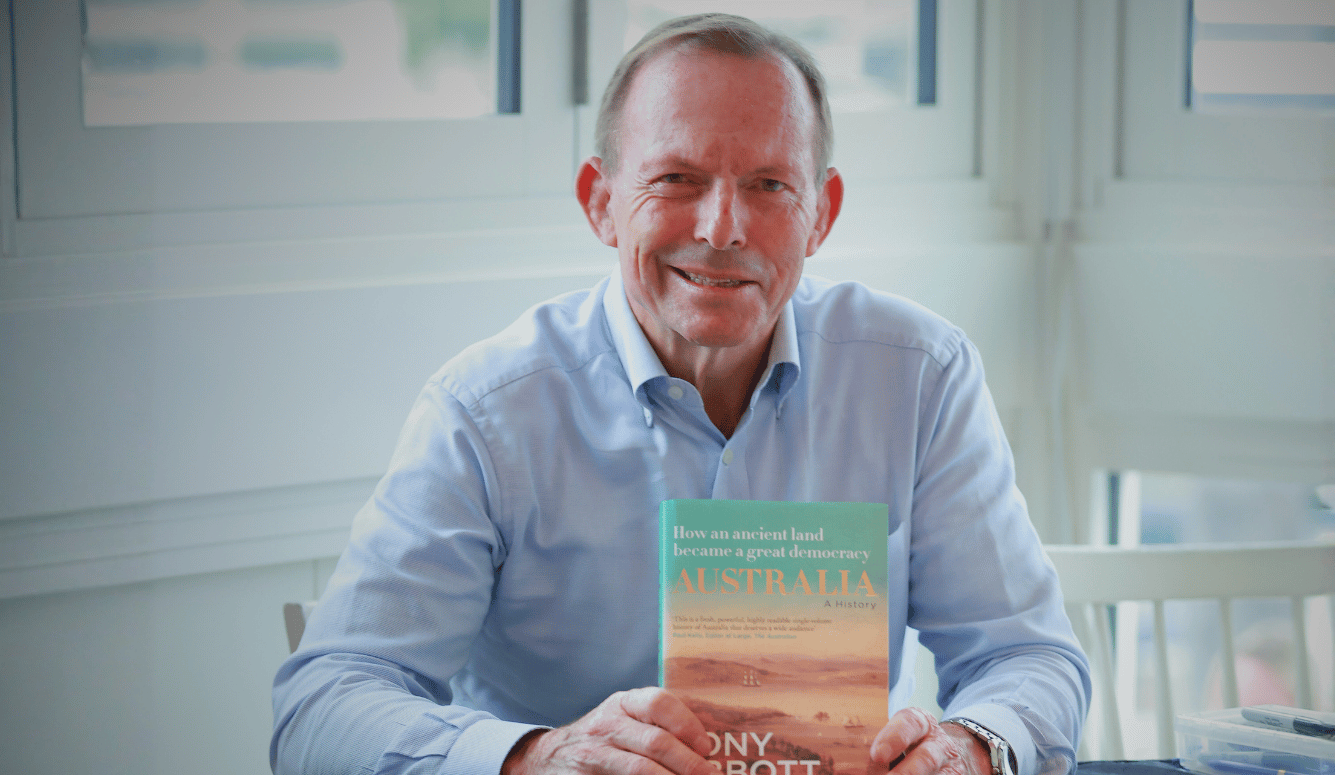recent
In Defense of Scientism
Once we have identified a desirable end—human flourishing—we can and should use science to discover and promote the policies that encourage it.

I hear the jury’s still out on science.
~Gob Bluth
In science, the jury is always out. This is because science is a methodological approach to the world, not a set of inflexible principles or a catalog of indisputable facts. Truth is always provisional. Science does not hold something to be incontrovertibly true. It says, “This appears to be true according to the best available theory and evidence.” On science, the jury long ago returned a verdict: it is awesome. It has conquered deadly diseases and eradicated oppressive superstitions. It has increased human flourishing and extended life expectancies. It has put humans on the moon and many fathoms under the ocean’s surface. It has uncovered the forces that guide the crudest motions of matter and those that govern the most exquisite processes of life. In short, it has vastly improved human existence while dramatically increasing our knowledge of the universe.
Despite all this, skeptical philosophers and pundits continue to forward arguments against scientific “arrogance”—or against what they see asscience’s hubristic attempt to crowd out other forms of understanding and discourse. In recent years, these arguments have focused on what is called “scientism,” a malleable term that is vaguely pejorative. (It’s worth noting that this term can be used clearly and effectively, as in Susan Haack’s excellent article, for instance.) A 2016 Slate article defined scientism as “the belief that all we need to solve the world’s problems…is science.” The author upbraided Neil DeGrasse Tyson for the sin of “scientism” because he asserted that all social policy should be based on science. Well, more specifically, he wrote, “America needs a virtual colony” with a simple constitution that reads, “All social policy shall be based on the weight of evidence.” Scientists like Tyson and Steven Pinker and Richard Dawkins and Sam Harris among others are often accused of—and denigrated for—promoting scientism.
In what follows, we will defend Tyson et al—and what is (often) called scientism more generally—using, where appropriate, the analogous term “science-based social policy” (SBSP). Science-based social policy is the view that social policy should be based on the best available theory and data; in other words, that social policy should be decided using the weight of the evidence. And that is all scientism is—the view that scientific attitudes and methods can enhance all modes of empirical inquiry and should, therefore, be promoted. Critics will almost certainly object that this is an unduly reasonable definition. Scientism is sometimes characterized by its opponents as a utopian ideology or an irrational faith that science will eventually eradicate every evil, inaugurating an era of everlasting peace and prosperity. But this is a straw man, and we have yet to read a serious proponent of science defend this definition.
The version of scientism we will be defending here is the version advocated by Pinker, Harris, Dawkins, and Tyson; the simple contention that we, as a society, should use the principles of science—skepticism, experimentation, falsification, and the search for basic explanatory principles—to determine, however clumsily and slowly, how the world works and what the best and most effective social policies are. If we want to determine the best marginal tax rates, we shouldn’t dredge up some dogma or other or cite the authority of a dead economist. Instead, we should examine and weigh the evidence, compare the merits of competing theories, and then aim for the most reasonable rates.
Of course, society is a complicated mess of competing interests and ad hocsolutions. Politicians can’t simply discontinue policymaking while scientists test the effectiveness of alternatives, approving or disapproving as the evidence rolls in. SBSP contends that we should strive to gather as much information about policy effects as is feasible even though we will not be able to obtain perfect information about the costs and benefits of every policy proposal before us. The correct approach is one tempered by humility. However, this doesn’t require a posture of defiant incredulity. We really do know more today than we did yesterday.
The best way to explain what scientism is while simultaneously defending it from its critics is to address, in turn, four of the most popular arguments marshalled against it.
1. Scientism Will Lead to an Unaccountable Tyranny of Scientists
Many intellectuals and pundits who have assailed scientism have argued that it would lead to a tyranny of bespectacled elites promoting a dangerous brand of bloodless rationalism. They associate SBSP with other failed experiments in top-down utopianism such as the French and Russian Revolutions. Kevin Williamson at the National Review, for example, noted that, “Conservatives, who always have the French Revolution in their thoughts, reminded [Neil Degrasse Tyson] that [SBSP] already has been tried, and that the results are known in the history books as ‘the Terror.’” And G. Shane Morris at the Federalist similarly contended that Tyson’s SBSP vision had been tested and that it had “caused a lot of people to lose their heads—literally and figuratively.” SBSP errs, in this view, because it promotes a tyranny of technocrats who vainly try to guide sinful and flawed humans to perfection using pure reason and utilitarianism. The outcome is a predictable but tragic waste of human life.
Although this is a popular characterization of SBSP, it is grossly misleading. SBSP is not committed to the patently false doctrine that humans are emotionless creatures guided solely by reason. Rather, it is dedicated to the scientific doctrine that human nature is not entirely known, but that it is likely comprised of ineradicable passions and biases. As Daniel Kahneman has argued in his 2011 book Thinking Fast and Slow, many of these passions and biases are well understood and have been thoroughly studied by scientists using the scientific method. In fact, the best modern psychological theories recognize that humans are nepotistic, tribalistic, status-driven creatures. Today’s most preposterous policy proposals (i.e., those that resemble the blank slate optimism of the French and Russian Revolutions) usually come from those who are ignorant of or willfully deny the conclusions of modern evolutionary psychology, not from those who are immersed in and promote SBSP.

Furthermore, the best historical and comparative evidence on social systems unequivocally demonstrates that centralized planning and top-down control are dangerous, ruinous of prosperity, and antithetical to human flourishing. Therefore, a person who based social policy solely “on the weight of the evidence” would not promote an excessively centralized system given the remarkable weight of evidence against its desirability.
2. Scientism Has Been Responsible for Terrible Crimes in the Past and Scientists Are Often Wrong
Opponents of scientism often argue that scientists have been wildly wrong in the past and have promoted dangerous, intolerant policies such as eugenics and white racial superiority. It therefore follows that they might be just as wrong today and promote policies that society will come to view as equally detestable. For example, Jeffrey Guhin at Slate wrote that, “Eugenics was science, as was social Darwinism and the worst justifications of the Soviet and Nazi regimes. Scientific racism was data-driven too, and incredibly well respected.”
It is certainly true that many scientific hypotheses have been wrong or incomplete; the history of science is a vast cemetery of once-revered theories and beliefs. Furthermore, even today, science is riddled with flaws. The social sciences, for example, have been sullied by a recent “replicability crisis,” and many sober-minded scientists and critics alike have expressed alarm at the combination of political bias and potentially shoddy experimental methods in the field. But science has made significant progress, nonetheless. In fact, science makes progress precisely by discarding or revising once-revered theories. Aristotelian physics eventually gave way to Newtonian physics, which has given way to relativity and quantum physics. Similarly, social science continues to make slow but steady progress, despite depressing detours along the way. It is heartening, for example, to note that today very few people seriously believe that war is caused by a Freudian “death instinct.”
Furthermore, although eugenics, social Darwinism, and “scientific” racism are often used to besmirch the reputation of science, they in fact illustrate why SBSP is so important. Social Darwinism, for example, wasn’t really a science, and it wasn’t based on the weight of the evidence; it was a social philosophy that incorporated a crude version of natural selection. Social Darwinists did not promote a judicious approach to policy determined by careful study of outcomes; they promoted a values-based approach to policy determined by a priori philosophical and moral assumptions. The same holds for eugenicists and “scientific” racists. (The term “scientific racist” is a rhetorical triumph for opponents of science, but really refers to someone who uses the patina of scientific nomenclature to justify bigotry, and not someone who uses the scientific method to defend racism.)
And what is the alternative to SBSP? It is of course true that the best scientific theories and the best data will sometimes prove to have been wrong or misleading—as already noted, scientific knowledge is provisional—and science is indeed imperfect, fallible, and limited. Our current understanding of the outcomes of charter schools, for example, may need to be revised in the light of future research. Therefore, policy proposals should generally be cautious and incremental. But how else are researchers to determine whether charter schools are desirable other than the application of SBSP? Revelation, intuition, and epiphany are lousy and unreliable tools. And even if they were determined to be reliable, we would only know that by carefully scrutinizing the evidence—in other words, by application of the scientific method. The same holds for political theory and philosophy, although they are certainly more useful and reliable tools than intuitions or epiphanies.
3. Scientism Cannot Determine Values and Therefore Is a Poor Guide to the Good Life
Opponents of SBSP often argue that science is incapable of determining human values and is therefore a poor guide for social policy. Ross Douthat, a conservative writer at the New York Times, for example, has argued that“scientism” is, at bottom, “an invocation of the ‘scientific facts’ to justify what is… a philosophical preference for Mill over Nietzsche….” This point was made more peremptorily by Jeffrey Guhin at Slate who flatly declared that “science has no business telling people how to live.” In other words, science might be able to ascertain facts about the world—to discover laws and particles and explanatory principles—but it cannot discern values or meaning, and therefore cannot tell us much about life, liberty, and the pursuit of happiness.
This argument is a version of David Hume’s philosophical claim that one cannot derive an “ought” from an “is.” Hume‘s argument contends that nothing about the state of the world can determine how we ought to behave or what we ought to value. To take an extreme example, there is nothing objectively or intrinsically wrong with defending the torture of one’s neighbors for no reason. The ought in any moral pronouncement (“one should not torture one’s neighbors”) is not exclusively determined by the state of the world, but instead requires something subjective—a preference, a desire, a value (such as a preference not to see people suffer needlessly). We agree with this argument, and we do not think that a defense of SBSP requires us to refute it.
The is/ought argument is almost exclusively scholastic, because in reality most people agree on an underlying value, and this helps us to bridge the gap between “is” and “ought.” As Sam Harris has argued in The Moral Landscape, the underlying value most people agree upon is that some form of human flourishing or satisfaction or well-being or happiness is an intrinsic good and ought to be promoted. That is, most modern people in the West agree, despite sometimes showy protestations to the contrary, that human well-being ought to be the goal of social policy and morality. To see this, consider the following examples. Would anyone argue that because beauty is the most important good in the world, it is good to shoot innocent people in the head because the resulting stream of blood is aesthetically pleasing? Or that because freedom is the most important good in the world, a social policy that saved 20,000 lives by increasing taxes by 1 percent would be immoral because it decreases freedom? Or that because piety is the most important good, it is good for people to slaughter heretics?
Of course, most moral/social policy dilemmas are more difficult to answer than these, but only because it is often more difficult to discern the policy or behavior that most increases human flourishing (or most diminishes human suffering). Harris is largely correct to compare morality to medicine. In medicine, the goal, of course, is to increase human well-being and reduce suffering, and the same should be uncontroversially true of morality and social policy.
Once we have identified a desirable end—human flourishing—we can and should use science to discover and promote the policies that encourage it. Put another way, science can and absolutely should tell people how to live. This is not because science is infallible or because it is better than literature or religion, but because it is the best method we have for obtaining knowledge. When researchers discovered that erecting fences with secures gates around private and public pools significantly reduced the risk of accidental drownings, did those who contend that science “has no business telling us how to live” propose that we disregard this evidence and its policy implications lest we risk a dangerous and unappealing overextension of science? What is true with pools is, in principle, true with all social policy and morality, even if many policy and moral puzzles are more difficult to solve.
4. Scientism Attempts to Cannibalize Other Fields and is Disrespectful of Other “Ways of Knowing.”
Finally, many critics of scientism contend that it is an imperial enterprise determined to colonize all other disciplines, replacing their unique methods and insights with a rigid program imported from physics. But this criticism assumes that those who promote scientism conflate the very different goals of art and science. It also assumes that scientism contends that physics and chemistry should be the model of all modern sciences. Both of these assumptions are incorrect.
Critics of scientism frequently express the fear that science is encroaching on the turf of the humanities, devaluing once noble human endeavors such as music, painting, and literature. But this is simply a category error. Humans don’t value art because it provides empirical knowledge about the world; they value it because it offers an enjoyable and often thought-provoking experience. It is no more a flaw of T.S. Eliot’s The Wasteland that it fails to provide the reader with scientifically vetted knowledge about the effects of pollution than it is a flaw of a delicious dessert that it fails to provide its consumer with knowledge about the relation between calories and weight gain. Some literature, of course, does provide knowledge about the world (for example, Dickens’s novels provide knowledge about industrialization in England), but that is not its usual or primary function. Science and the arts really are non-overlapping magisteria. They perform very different functions, and so they can coexist peacefully.
But, unlike the arts, the shared goal of literary criticism, film criticism, history, and many other disciplines is to pursue and disseminate some kind of objective truth. These disciplines should therefore use the tools of modern scientific thinking. This doesn’t mean that they should be preoccupied with measurement or tethered to reductive methodologies, it simply means that critical analysis ought to be based upon evidence and dedicated to rigor and rational argumentation. Literary criticism, for example, should be disciplined by the text it is analyzing. One should not be allowed to argue that Lolita is actually about the Cold War without providing evidence from the novel. On this basis, some interpretations are more plausible than others, and authorial intent, where discernible, can start to regain its authority. The critic should be skeptical and cautious about various readings, striving to falsify them with textual evidence. Furthermore, one should apply the best available theories from psychology, anthropology, and sociology to augment understanding of literature and the arts. We are generally skeptical that insights from, say, evolutionary psychology are crucial to good literary criticism; however, they are certainly more helpful than the patently nonsensical psychological theories many critics still use, which often come from the largely falsified theories of Freud or Jung. The same applies a fortiori to history.

So then what about philosophy? Many of those accused of promoting scientism, such as Dawkins and Harris, have written or said dismissive things about philosophy, often mocking it for its obsession with unanswerable questions and its tendency to confuse instead of enlighten. As such, they have been attacked by philosophers who, unsurprisingly, don’t appreciate the attacks on their discipline. But it’s clear, if one is charitable when interpreting these thinkers, that they don’t dislike or disparage philosophy per se, but rather a kind of esoteric and self-referential philosophy that has been mocked and belittled by many. (Ambrose Bierce’s definition of philosophy as a “route of many roads leading from nowhere to nothing” comes to mind.) Dawkins, Pinker, and Harris are all profoundly philosophical thinkers who reflect upon the consequences of their concepts and classifications and try to synthesize vast amounts of data into a coherent view of the universe.
Scientism doesn’t degrade philosophy, but its adherents are admittedly impatient with some of the logic-chopping, yawn-inducing, and obscurantist varieties practiced at elite institutions. They believe that philosophy should grapple with data and work with science. Some of scientism’s attacks on philosophy are undoubtedly unfair and deserve pushback. But most of those who advocate the expansion of science are not literally calling for the abolition of philosophy; they are calling for a philosophy that is more practical and less arcane.
Conclusion
Along with the rule of law, markets, and representative government, the scientific method (and scientific attitude more broadly) is one of the great human institutional creations. It has allowed us to solve many stubborn puzzles, to replace superstition with real understanding, and to create technologies that have raised millions out of indigence and suffering. Science has been so successful, in fact, that we, the spoiled offspring of the Enlightenment, take its fruits for granted and mistake its reasonable pride for imperial arrogance.
To be fair to critics of scientism, we should concede that some people have attempted to use the rigorous methodology of physics as a model for all other disciplines and have traded understanding for a mere illusion of precision. And others have belittled the power and importance of poetry, painting, music, and other non-scientific endeavors. Such errors deserve rebuttal. But many of the arguments forwarded against scientism are misleading and caricature the intellectuals who advocate the spread of science across other disciplines and into the realm of social policy.
None of them believes that if only every field copied the methods of physics and chemistry, then we’d be on the path to paradise or that art is a cheap facsimile of science, a distortion of the Truth, a degraded copy of a copy. What they do believe is that in the vast toolkit for understanding and engaging the material world, no other tool is better or more reliable than science.






